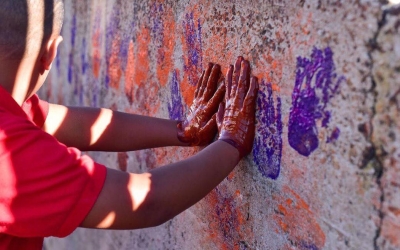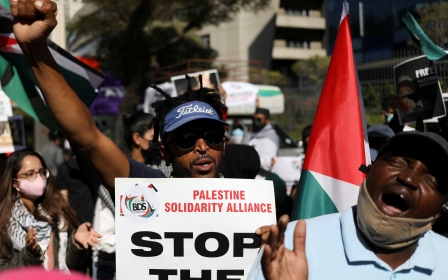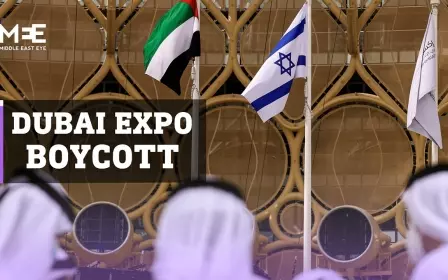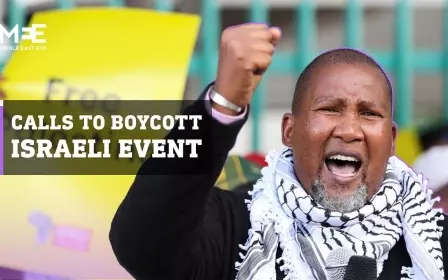South Africa: Pro-Palestine activists slam Davis Cup tie with Israel
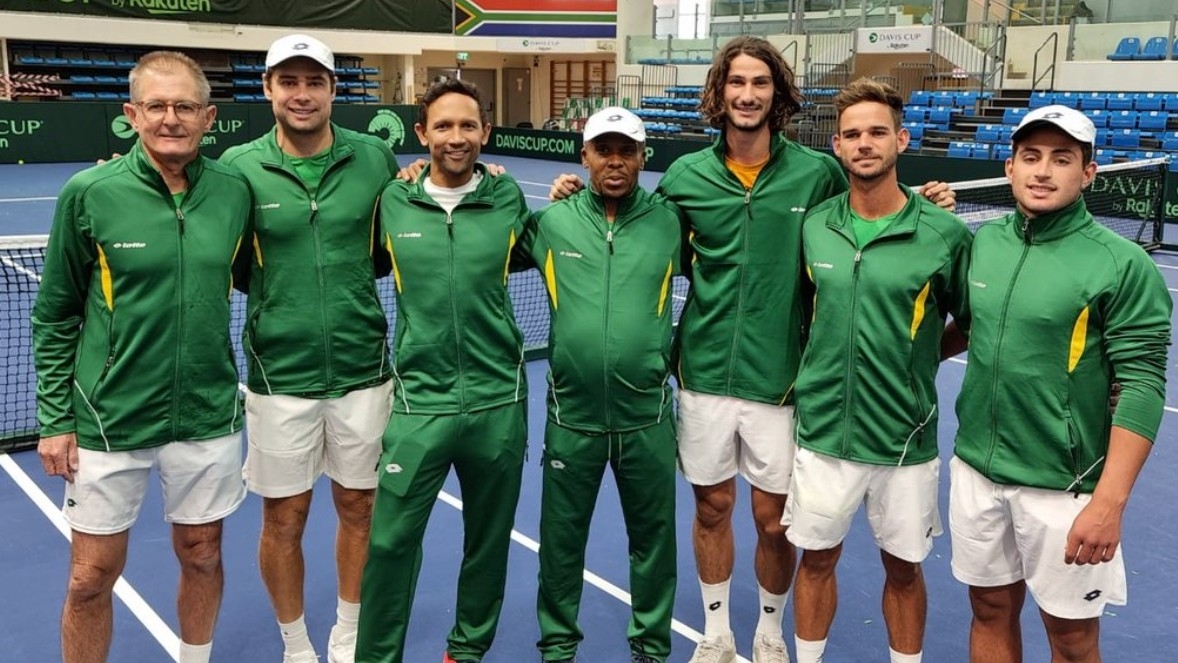
Pro-Palestinian activists have accused South Africa's national governing body for tennis of normalising crimes against humanity, following its decision to go ahead with a Davis Cup tie against Israel on Friday.
Organisations associated with South Africa's Boycott, Divestment and Sanctions (BDS) coalition said they were "outraged" that fixtures scheduled for Friday and Saturday would be going ahead despite calls for the games to be scrapped over Israel's treatment and occupation of Palestinians.
The games, which give South Africa a chance to return to Group 1 in the international team competition, are scheduled to take place in Ashdod, an Israeli city some 32km south of Tel Aviv that was built on the ashes of the Palestinian town of Isdud.
"South Africa Tennis cannot feign ignorance about the growing evidence from Palestinian and Israeli human rights organisations, various UN mechanisms, human rights legal experts and eminent South Africans such as the late Archbishop Tutu, that Israel is an apartheid state," South Africa BDS said in a statement.
"The Palestinians of Isdud were forced to flee their homes under relentless aerial bombardment. They remain as refugees up to today, unable to return to their land."
New MEE newsletter: Jerusalem Dispatch
Sign up to get the latest insights and analysis on Israel-Palestine, alongside Turkey Unpacked and other MEE newsletters
The BDS movement seeks to challenge Israel's occupation and abuses of Palestinian human rights through economic, cultural and academic boycotts of Israel, similar to the successful boycott campaigns of apartheid South Africa.
The movement's pressure on the South African government has heightened after Amnesty International became the fourth major human rights group to accuse Israel of creating and maintaining an "apartheid" system to control Palestinians.
In December, thousands of South Africans called on Miss South Africa Lalela Mswane to withdraw from the Miss Universe pageant in Israel. Though Mswane remained in the competition, South Africa took the step of withdrawing its support for her.
South Africa BDS urged the government to do the same should its tennis governing body refuse to pull out of the Davis Cup event. In 2018, Thulas Nxesi, the-then Minister of Sports, Arts and Culture, boycotted South Africa's Davis Cup tie in Johannesburg after protests erupted days before the tie.
"In the light of South Africans' overwhelming denunciation last December of our contestant [at Miss Universe], Tennis South Africa cannot claim to be unaware of the movement for boycott, divestment and sanctions against apartheid Israel," South Africa BDS said.
"Playing sports and participating in cultural events with an apartheid state normalises a crime against humanity. We recall the words 'no normal sport in an abnormal society' uttered by South African sportspeople opposing apartheid."
Calls to boycott the tennis tie come as Western governments are imposing sanctions against Russia and European and US companies have severed ties with Moscow over its invasion of Ukraine.
Lana Tatour, an assistant professor in global development at the School of Social Sciences, University of New South Wales, said that while many of the anti-Russia measures were being rightfully implemented, calls by Palestinians to sanction Israel went ignored.
"Suddenly, boycott and sanctions are a legitimate strategy. No 'why are you singling out Russia arguments, no whataboutism, no claims that boycott harms prospective peace and dialogue, that culture should be apolitical & about building bridges rather than being divisive."
Relations between Israel and a series of African countries have warmed over the past decade, particularly during former Israeli Prime Minister Benjamin Netanyahu's time in office. Israel has diplomatic relations with 46 African countries, including South Africa.
Middle East Eye reached out to both Tennis South Africa and the Department of Sports, Arts and Culture for comment but had not received a response by time of publication.
Middle East Eye delivers independent and unrivalled coverage and analysis of the Middle East, North Africa and beyond. To learn more about republishing this content and the associated fees, please fill out this form. More about MEE can be found here.


